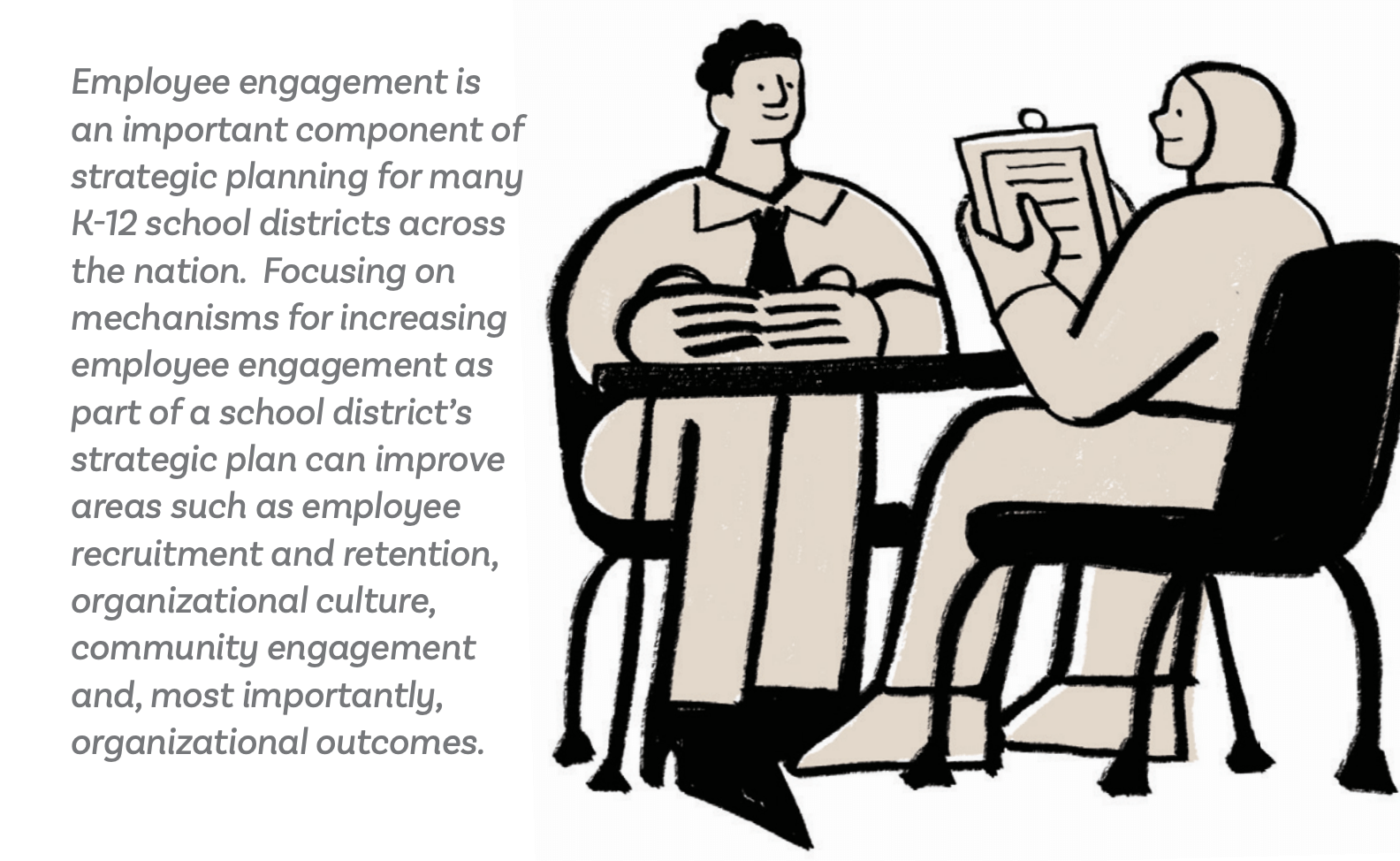Using Staff Engagement Tools with Focus on Stay Interviews

Using Staff Engagement Tools with a Focus on Stay Interviews to Support and Strengthen Your Strategic Planning
By: Dr. Julia A. Wheaton, eHCLE Associate Superintendent, Consolidated High School District 230, Orland Park, IL
Despite its importance in achieving organizational mission, vision, values and goals, the systematic measurement of employee engagement has been challenging for HR leaders as impersonal employee surveys or purchased tools are often too broad and general to gain meaningful data regarding the individual needs and perspectives or your employees. This challenge can be addressed through the use of Stay Interviews in order to develop and assess laser-focused engagement strategies and initiatives that will strengthen strategic goals and intended outcomes while also improving work culture.
Engagement Theory was initially developed and formally researched by William Kahn, considered to be the “Father of Engagement Theory”, as an organizational psychologist and professor of Management & Organizations at Boston University. Dr. Khan’s perspective is captured by his description of his theory in 1990 as,“The harnessing of organisation members’ selves to their work roles; in engagement, people employ and express themselves physically, cognitively and emotionally during role performances.” Three main factors of Dr. Khan’s theory include the following:
- Meaningfulness: Purpose behind the work
- Safety: Psychologically safe in workplace
- Availability: Capacity to physically & mentally perform a role
This author’s eHCLE action research project, completed in December 2023 as part of the AASPA/EXMI certification program, focused upon the use of baseline and needs assessment data in developing an employee engagement plan aligned with a high school district’s strategic plan. The district-wide action plan targeted three critical areas of staff engagement perceptions identified as priorities based upon a ThoughtExchange™ with internal stakeholders: Curriculum & Instruction Decisions [Availability], Safety & Security Protocols [Safety] and Staff Recognition [Meaningfulness]. During action plan implementation, formative assessments were conducted using a Stay Interview protocol involving 5% of the school district staff (n = 50) between January and October, 2023 to formatively assess plan effectiveness. A random sampling procedure was used to identify 50 employees matching the employee representation percentage of each representative group (teacher n = 30, support staff n = 18, and administrator n = 2). Participation was voluntary which resulted in 34/50 invited respondents agreeing to participate in the Stay Interview.
The Stay Interview protocol contained 10 questions (1 Likert scale and 9 open-ended response questions) that were qualitatively coded by this author based upon emergent themes and employee groups. ChatGPT™, an AI tool, was used to analyze open responses provided by employees to identify three Employee Personas, by employee group, that described the most prevailing engagement perspectives of our employees interviewed. Each Stay Interview was conducted by this author in a 1:1 and face-to-face live setting that occurred within the employee’s work location. Interviews were scheduled in thirty-minute intervals with the average length of interviews being between 15 - 20 minutes.
Stay interview results revealed a significant difference in perceptions, needs, and stay motivations between licensed and classified employee groups. Identifying these differences enabled our district to refine and differentiate our engagement strategies resulting in the achievement of annual engagement targets for 5/12 targets within six months of implementing a year-long employee engagement strategic plan coinciding with the time frame of this eHCLE research project. Results of this research strongly suggest that differentiated engagement strategies should be developed and implemented with employee groups with fidelity based upon the specific needs within each group. Basically, employee engagement is NOT a “one size fits all” initiative. Stay interviews allow HR leaders to personalize employee engagement initiatives increasing and expanding outcomes across the organization.
